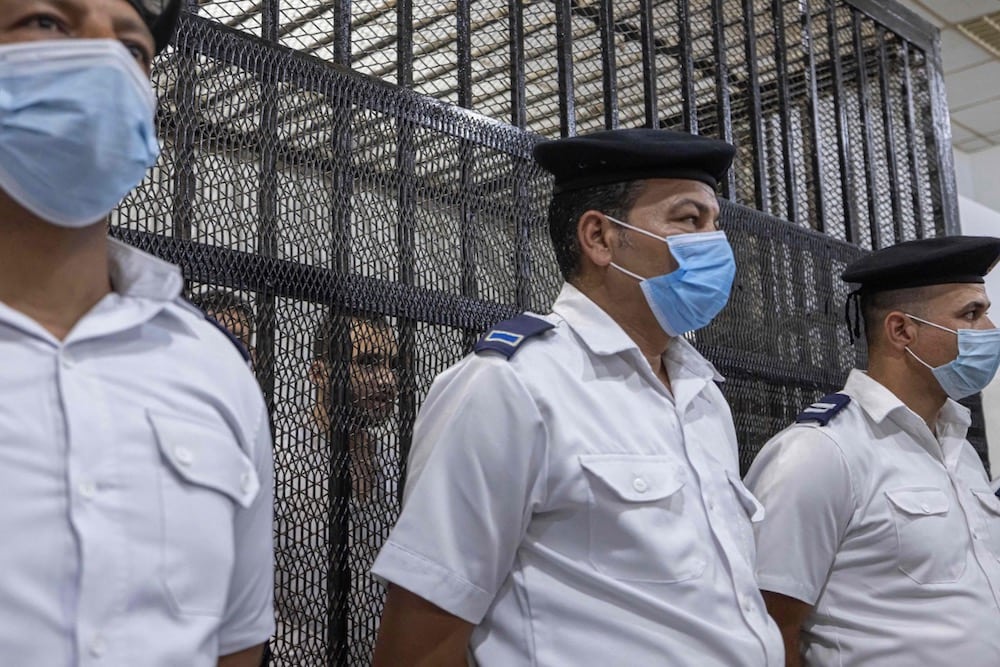A new report finds the human rights situation in Egypt has persisted and even exacerbated since its last UPR review in 2019.
This statement was originally published on cihrs.org on 25 January 2023.
The human rights crisis in Egypt has persisted and even worsened over the last three years, as confirmed by the mid-term report submitted by the Egyptian Taskforce for Human Rights{1} to the Universal Periodic Review (UPR) mechanism at the United Nations, titled ‘A Crisis by Design: The Systematic Nature of Human Rights Violations in Egypt’.
The Egyptian government received 375 recommendations on improving the country’s human rights situation during its November 2019 UPR. Despite these recommendations and the passage of over half the period until Egypt’s next UPR, there has been no genuine improvement in the country’s human rights situation. Instead of taking any credible steps to implement the UN’s recommendations, the Egyptian authorities have escalated their systematic perpetration of human rights violations with the complicity of state institutions that have witnessed further erosion of their independence since 2019. Egypt’s human rights crisis has endured, and even further deteriorated on several fronts, in view of the human rights reports submitted by independent organizations three years ago, prior to Egypt’s 2019 UPR.
Although the Egyptian government announced its acceptance of some of the 2019 recommendations, human rights violations throughout the country have remained pervasive throughout the November 2019 to November 2022 UPR report timeline. Egyptians are increasingly put to death after grossly unfair trials, in defiance of recommendations for a moratorium on capital punishment. Torture remains rife in places of detention, while perpetrators enjoy complete impunity. Citizens continue to lose their lives behind bars under dire conditions and medical neglect. Enforced disappearance remains widespread, and is among many violations committed under the guise of counterterrorism.
Egypt fared poorly in numerous other human rights indicators, including media independence. For peacefully expressing opinions, journalists, political opponents and dissidents, and even apolitical citizens are arbitrarily detained for indefinitely prolonged periods. It remains hazardous for anyone in Egypt to exercise their fundamental rights to free expression, free assembly, and free association. Judicial independence continues to be further compromised while violence against women and violations of women’s rights remain unaddressed. Human rights defenders and civil society activists face imprisonment, torture, travel bans and asset freezes in retaliation for their work, including for their cooperation with UN mechanisms.
Rather than striving to improve upon the aforementioned indicators of its abysmal human rights record, the Egyptian government has intensified its efforts to the obscure the reality of the crisis under a veil of misleading initiatives, including the renewal of the National Council for Human Rights, the reactivation of the Presidential Pardon Committee, the adoption of the National Human Rights Strategy, and the announcement of a national dialogue. None of these initiatives have resulted in any tangible improvement to the country’s human rights situation.
- {1} The Egyptian Taskforce for Human Rights includes a number of independent Egyptian human rights organizations, some of which are based in Egypt while others are based abroad. The group began its work in December 2018 in order to coordinate the submission of a comprehensive report on the human rights situation in Egypt to the UN Universal Periodic Review mechanism. The organizations participated in preparing the mid-term report, during the UPR timeline of November 2019 to November 2022. The report was sent in January 2023 to the United Nations. The Egyptian Taskforce for Human Rights includes the Cairo Institute for Human Rights Studies, the Egyptian Front for Human Rights, Committee for Justice, the Egyptian Initiative for Personal Rights, Center for Egyptian Women’s Legal Assistance, the Freedom Initiative, the Nadeem Center, the Egyptian Commission for Rights and Freedoms, the Association for Freedom of Thought and Expression, in addition to another human rights organization preferring to remain anonymous.



